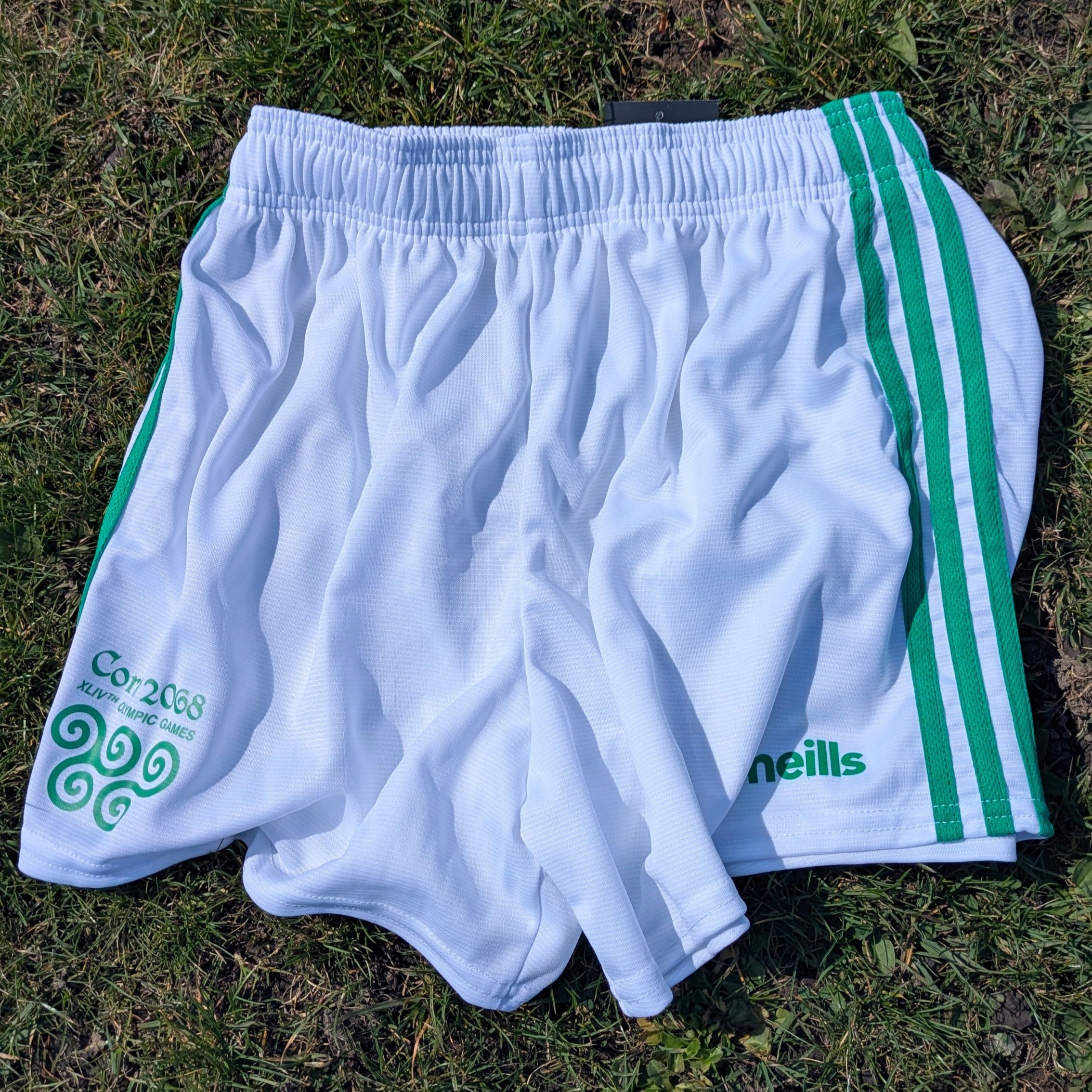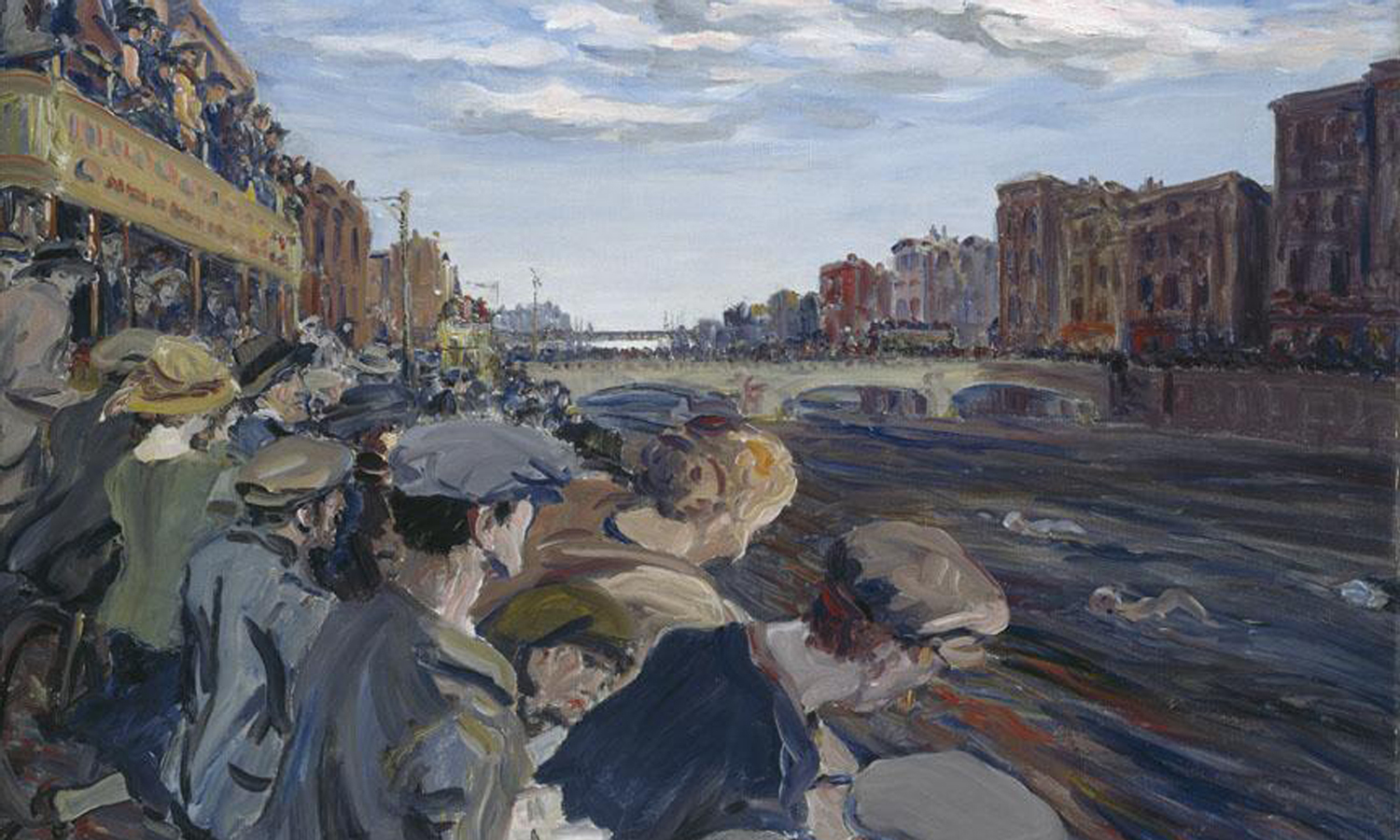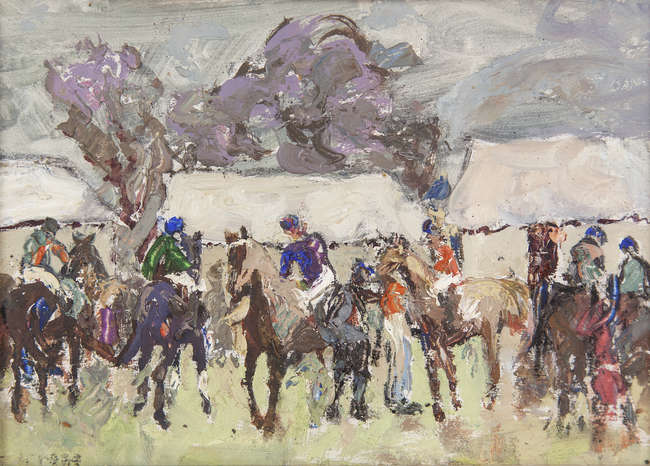Tailteann Ode
Written at the request of the Irish Government on the revival of the Tailteann (Irish Olympic) Games.
Empyrean is the source
Of indomitable will.
God the runner to his course
Holds, and urges on until
Lips and face of blood are drained,
And fainting limbs are numb:
Till the heart, by God sustained,
Bravely to the end is come.
By the Conflict is revealed
In a runner what is best;
By the struggle in the field,
By the speed which is the test,
By the speed that wears him down
Till the spirit alone can bear
Limbs that stagger for the crown
And the thunder in his ear.
Where are they who ran before
Under Tara’s wide-eyed steep;
And the chariots that tore
Parallel the ridges deep?
Where are noble man and horse?
Ah, they both have lost the rein;
They have circled in a course
Tara shall not see again!
Herald: Silence now and hear the King!
KING LEARY
We are, as our fathers were,
Lovers of the swift and strong,
Lovers of the open air,
Lovers of the horse and song
And the glories of the voice
In the deeds to be retold.
Therefore let us now rejoice
As the kings rejoiced of old.
Room enough for Peace is here
On the green and shaven swards,
For the pitching charioteer,
For the grave contending Bards,
For the young men in the race,
For the stately sports of dames,
For the maidens fair of face.
We have opened Tailteann Games.
Herald: The king of the South. Be listening!
THE KING OF THE SOUTH
King, we have come to this noble place
From the mountainous south of the narrow bays
Where, isled in grass, the short oaks grow,
Their low leaves wet by the tide below,
Where the golden sea-weed is lodged and low
Till the tide returns as smooth and bland
As the tremulous path to Fairyland;
And the moon at night renews the track
With a ladder of light on the waters black:
A misty land that is poor in flocks,
Of tender valleys and heartless rocks,
Of stout lowlanders and, wild without fear,
The deep-breathed runner, the mountaineer.
King, we will try on your plain of Meath
Who may in the running be left to breathe,
As the circling race draws near to its close
And our men, reversing their way with foes,
Fly from each other along the track,
Who may for his running the prize bear back.
Our Bards will sing so the Dead may hear
In their green duns watching from year to year
The Summer come with its grasses tall
And, after a longer interval,
The sweet youth ripen to women and men
To love, to challenge, to glory; and then
The green earth laps them all and, all too soon,
They join the watchers within the dun.
We are come, O King, where the games are sped,
To share life’s crown with the still-foot Dead.
THE KING OF THE WEST
Where I come from, King, the skies
Are less coloured than the land;
And the wildest winds that rise
In their clouds are moist and bland.
If you climbed a mountain peak
When the sun has just gone down,
And the sea’s without a break,
Heaven from sea could not be known.
Islands shimmer after dark
Floating in forgotten gold,
Islands reached by no man’s barque,
Islands poets’ eyes behold.
And I bring my bards to try
Who may conquer in the course
Where the wing’s too slow to fly,
Where none may prevail by force.
THE SONG OF THE BARDS
Where should follow Sport but Song,
And the victor but renown?
Many men are brave and strong,
But if Courage strive unknown
And no poet make it sweet
With the words that rouse the deed,
Even better were defeat:
Who will men forgotten heed?
We can drive a host that wars
With the long embattled years:
Time gives ground when in the cars
Poets are the charioteers.
Beauty vanishing like Spring
We can rescue and respite,
Raise her from Earth’s shadowing
Up into perennial light.
We can walk the reddened path
In the slippery wake of Conn,
Rouse the Hundred-Battled wrath,
Bid him stay or tarre him on.
We can tell of Queenly joy
Underneath the trysting thorn,
And the anger of McRoy
When the wooden sword was worn.
We can sing the noble horse
And the wonder of his race,
Showing how the supernal Force
Turns to Courage, Speed and Grace:
For he sprang from soil and surf
Where the ocean weds the loam;
And he thunders on the turf,
And his speed gives back the foam.
While we hold the Shield of song
Stands the lineage of Kings;
And our buckler against wrong
Louder than MacNessa’s rings.
Loveliness we can renew
Unrestricted by its date,
And the brave man’s death undo.
We can bend the neck of Fate.
Now from prairie, hill and bush
Which gigantic rivers drain,
Streams whose single-handed rush,
Like a Chief’s, puts back the main,
Comes the old heroic race,
Men whose names are with us still,
And we hail them face to face
In the Games of Strength and skill.
ODES AND ADDRESSES
Where the blue eye beams with light,
Where there is the open hand,
Where the mood is dark and bright
There is also Ireland.
Welcome, Brothers, and well met
In the land that bids you hail:
Far apart though we be set,
Gael does not forget the Gael.
TO THE MOON
O born before our birth began!
Through all your blanched and listening vales,
Far from the echoing shores of man,
Aloof, may sing—what nightingales!
TO THE FIXED STARS
Gazers at Earth who may not snatch
A moment’s rest, O Sentinels,
Who watch with none to change the watch,
Is there a Rumour which fortells,
After long vigilance, relief;
And timeless ease from ageless hours;
A respite from the blaze of Life,
Deep in a shelter such as ours,
Where you may bathe your eyes in Night,
Trusting in Death’s long “All is well”?
Ah, no! For what can give respite,
And quench the light perpetual?
Our very shade which seems to rest,
Spins at the apex of its cone;
The dark in which the stars shine best,
Is by some solar radiance thrown.
Even the primordial Dark that once
Engendered light, nor growth debars,
Is phosphorescent with dead suns,
And pregnant with the dust of stars.
VIRGIL
From Mantua’s meadows to Imperial Rome
Came Virgil, with the wood-light in his eyes,
Browned by the suns that round his hillside home
Burned on the chestnuts and the ilices.
And these he left, and left the fallows where
The slow streams freshened many a bank of thyme,
To found a city in the Roman air,
And build the epic turrets in a rhyme.
But were the woodland deities forgot,
Pan, Sylvan, and the sister nymphs for whom
He poured his melody the fields along?
They gave him for his faith a happy lot:
The waving of the meadows in his song
And the spontaneous laurel at his tomb.
Oliver St. John Gogarty, 1924




